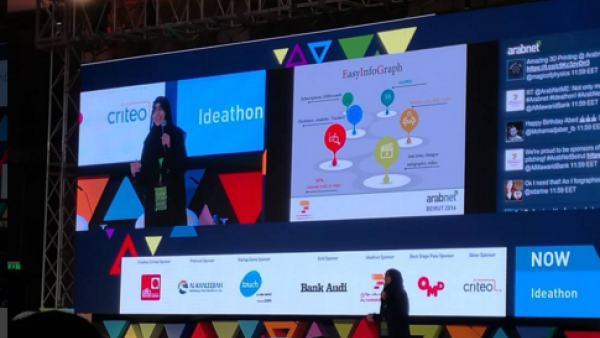Back in 2010, the idea of starting a tech company in Lebanon sounded like a pipe dream. Today, like in much of the rest of the world, technology startups are the hottest companies.
But unlike many other countries, Lebanon has done it with insufficient infrastructure, regional instability and political gridlock. The ecosystem, which now offers support from the earliest to latest stage startups, has been created and led by the entrepreneurs themselves.
Last month, the Boston-based publication Global Entrepreneurship Monitor, ranked Lebanon among the top 20 countries for entrepreneurship, no easy feat for a place still waiting for high-speed Internet.
“The ecosystem has been growing quickly since 2013 and since ArabNet launched in 2010. We’ve seen the rise of venture capital and [technology] education in Lebanon,” said Nadim Zaazaa, Lebanon country director for the accelerator U.K. Tech Hub in Beirut, which has done a series of comprehensive surveys of entrepreneurship throughout Lebanon, that he presented in a brief lecture on the anatomy of Lebanon’s growth at the seventh annual ArabNet Beirut Wednesday.
“We see opportunities and challenges. Where can Lebanese focus so we can be competitive?” he asked the audience.
With its continued weak IT infrastructure, which despite some small advances hasn’t been able to keep up with the demand of Internet users, Lebanon, housing an estimated 300 IT startups, has managed to defy many expectations by being the birthplace of companies that are reaching global markets, many of which continue to have a presence in Lebanon.
The country’s Central Bank Circular 331, launched in August 2013, has given startups a moral and financial boost with its $450 million fund, $250 million of which has been committed to venture capital firms.
“We’re seeing a lot of growth, and we need to support it. We’re trying to give them support so they can reach international standards,” says Lama Zaher, communications manager at the U.K. Tech Hub, which has seen 80 new jobs created in the past eight months at companies being hosted at the accelerator.
To continue the momentum, she says, “we need to go back to the youth – schools and universities. We need to create a pipeline, so that when they go to university they don’t always go into the traditional sectors. This is where the world is going.”
She doesn’t see why Lebanon shouldn’t be a regional leader with its native talent and its geographic accessibility to other Middle Eastern markets. “Lebanon could be positioned easily – if you want to access the MENA market, you can start from Beirut.”
Abdallah Jabbour, managing director of Lebanon for Entrepreneurs, a Lebanese diaspora-backed reform and mentorship initiative for the tech startup ecosystem in Lebanon, says he returned to the country after 10 years of living in the U.S. because he “saw potential.”
However, he takes a more long-term, pragmatic approach, referring to Lebanon’s ecosystem as “nascent” and saying it could take 10 years to fully mature into one that is financially sustainable.
“We’re still a very nascent ecosystem. We have 300 IT startups in Lebanon. Everything is in place. But the pipeline is too small. VCs [venture capitalists] need to make money to return money to the Central Bank. Everyone is learning at the same time. Things don’t get built overnight,” he says.
Still, Jabbour acknowledges that he is impressed with what the country’s sector has managed to do in a relatively short period with few resources. “Five years ago, I started to see more activity and people becoming more aware.
“If you’d asked me five years ago, I would have told you this is mostly buzz. Now, I can comfortably tell you all the elements of the value chain have been put in place or are being put into place. Funds, boot camps, competitions – even banks are now in the game. Are we there yet? Of course not.”








